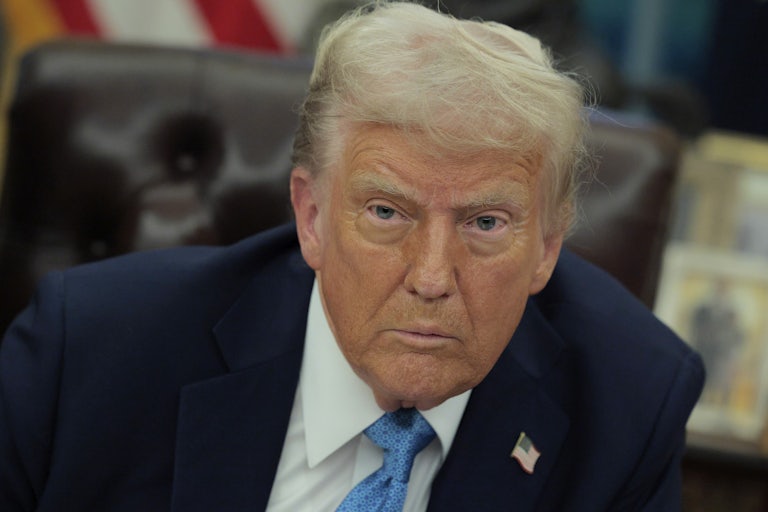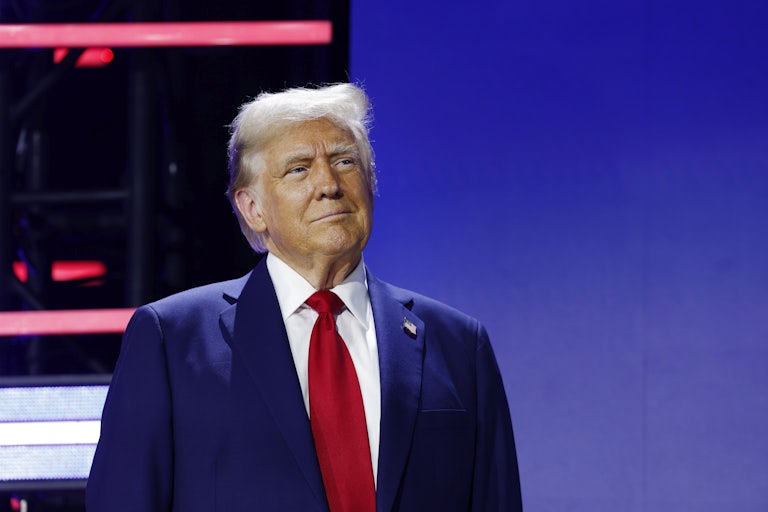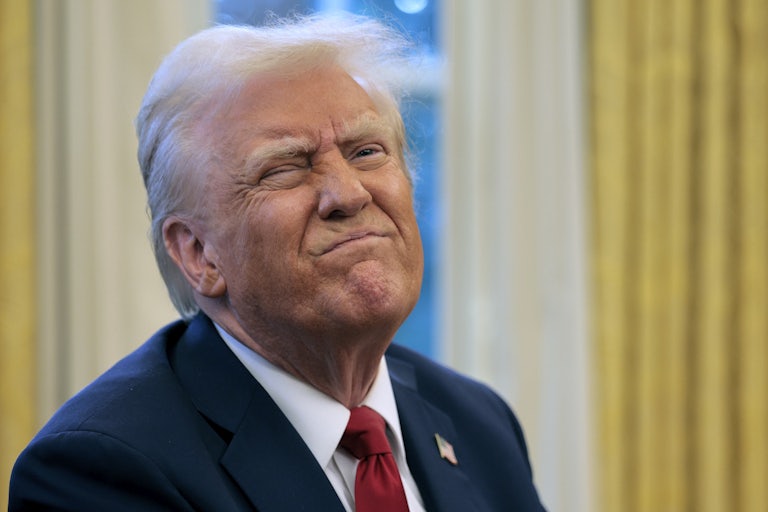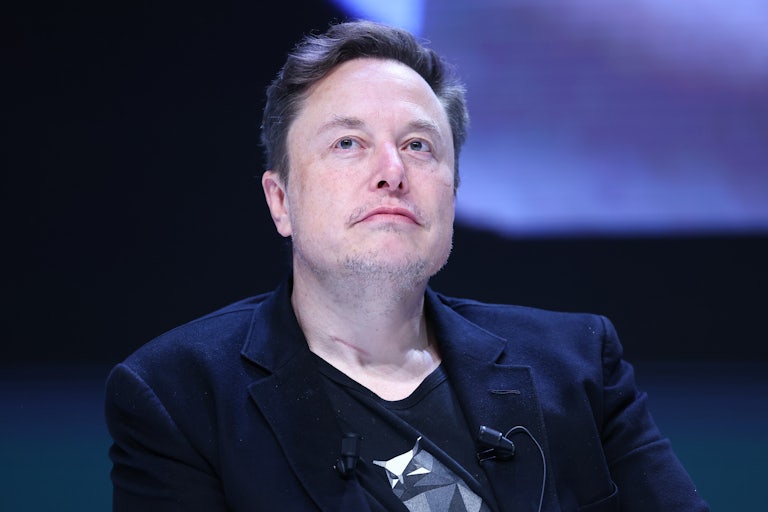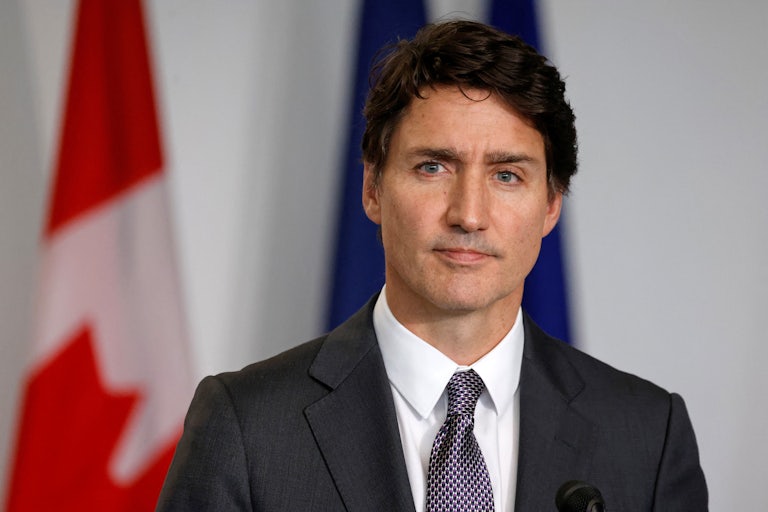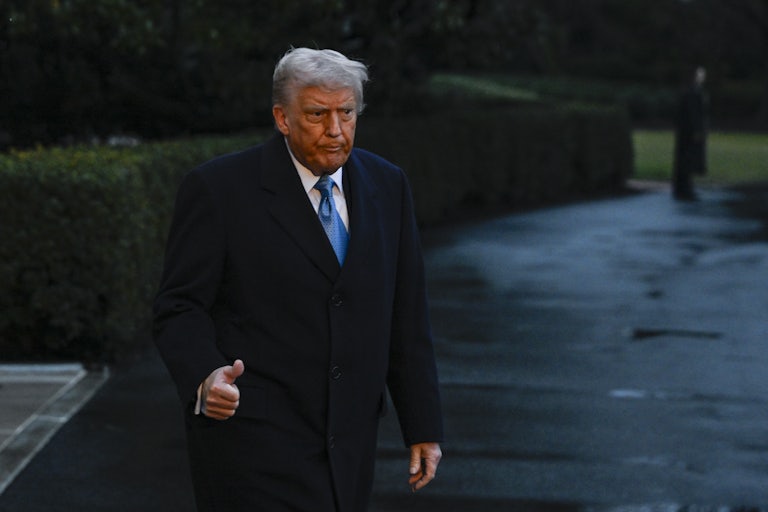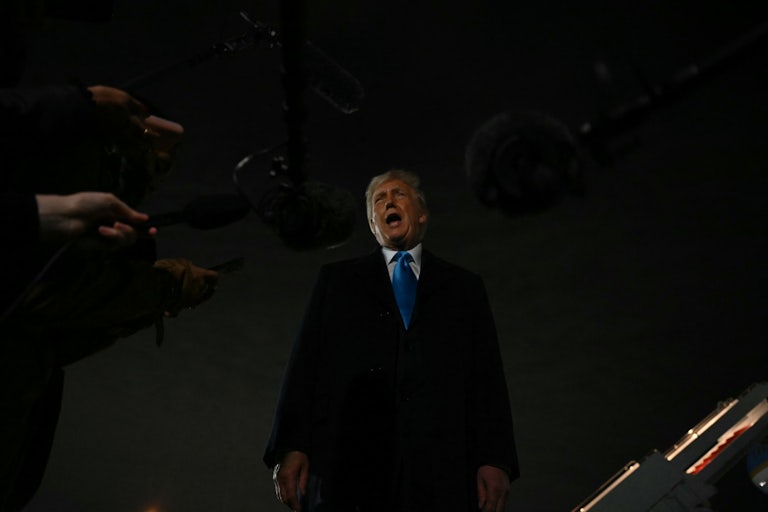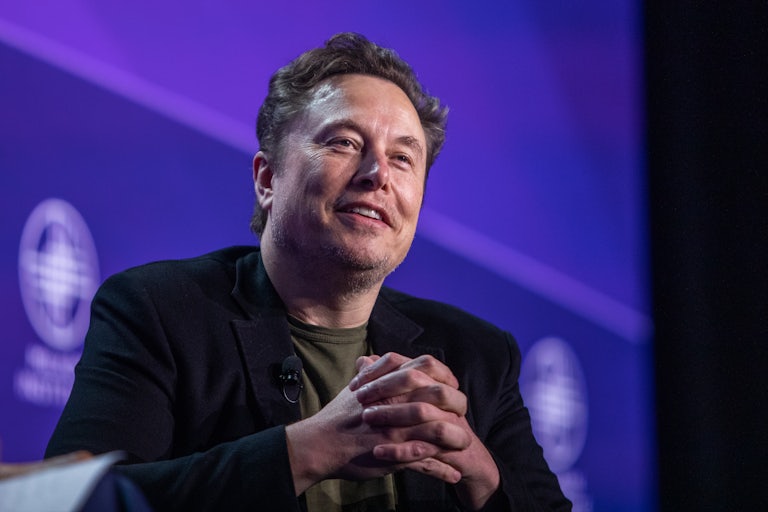Trump’s Tariffs Go Too Far for Even This Senior Republican
Senator Ron Johnson said he was worried about the consequences of Donald Trump’s tariff war.
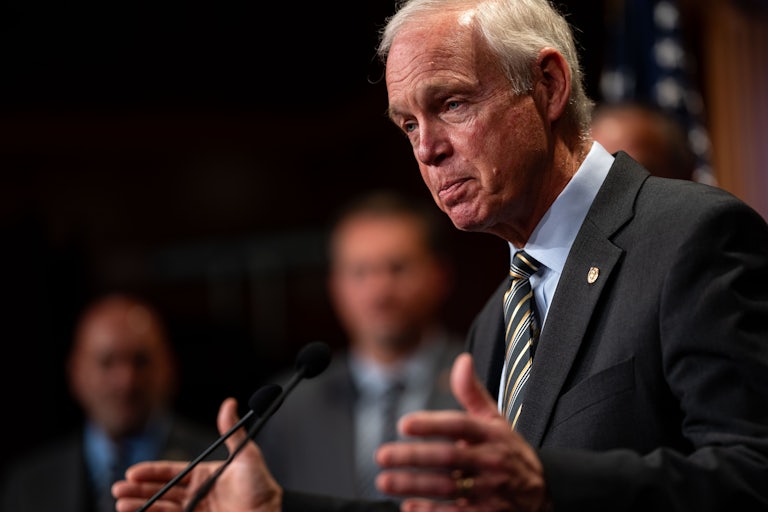
Donald Trump’s tariff war is too much for his otherwise steadfast ally Senator Ron Johnson, who compared the decision to impose 25 percent tariffs on goods from Mexico and Canada to Great Depression–era trade policy and warned of the consequences.
“I don’t believe that is productive. It is going to hurt American companies, American exporters, it will hurt American consumers long term,” Johnson told the far-right news outlet NewsMax on Monday.
A hardcore fiscal conservative, Johnson blames government spending for pretty much everything. He’s lauded Trump’s massive federal budget cuts and Elon Musk’s Department of Government Efficiency, or DOGE. But when it comes to limiting free trade, Johnson said he “can’t predict where this all goes.”
“I’m concerned,” the Wisconsin Republican told NewsMax.
On Saturday, Trump imposed 25 percent tariffs on America’s top trading partners, which will make everything from avocados to children’s toys more expensive. The decision naturally sparked outrage and disbelief from both countries, leading to an agreement with Mexico to delay the tariffs for at least a month. Canada, meanwhile, has already taken retaliatory measures.
“Tariffs are a tax. When you tax something, you get less of it, so we’ll probably get fewer imports, but then with retaliation, fewer exports,” Johnson warned.
Johnson compared the tariffs to the Smoot-Hawley Act of 1930, which raised import duties on imported goods to protect American farmers. The heavily protested policy wreaked havoc on global trade and worsened economic conditions for Americans in an already precarious time.
Several other Republicans, including Mitch McConnell, have also slammed Trump’s tariffs, but most remain determinedly loyal in light of a decision that will harm American consumers and likely unleash global economic chaos.
